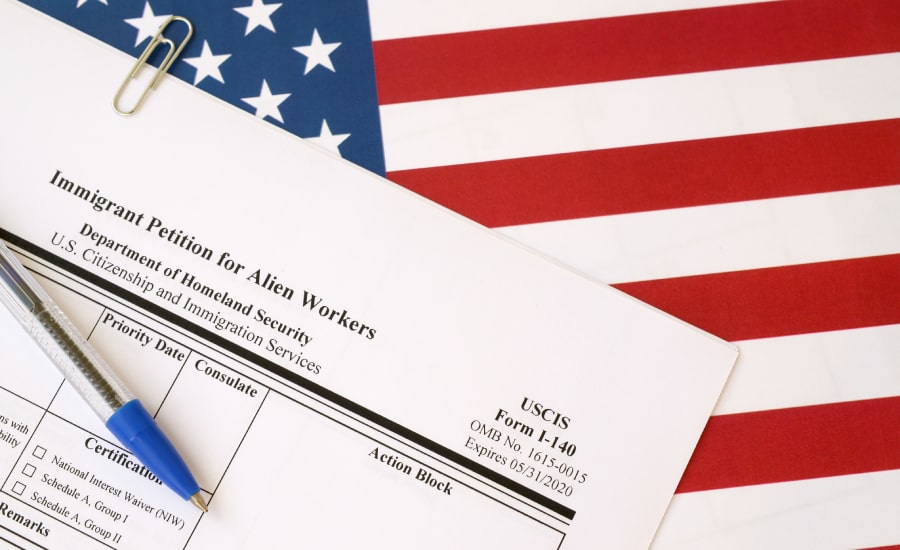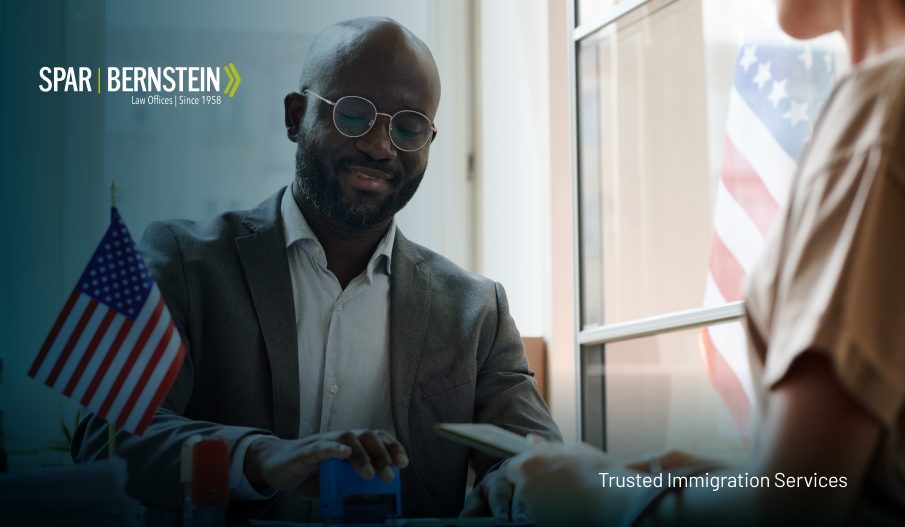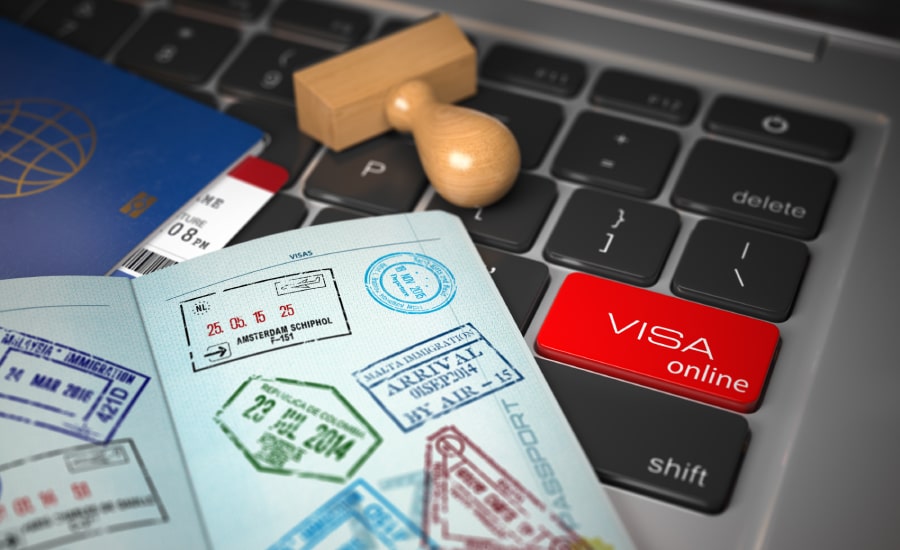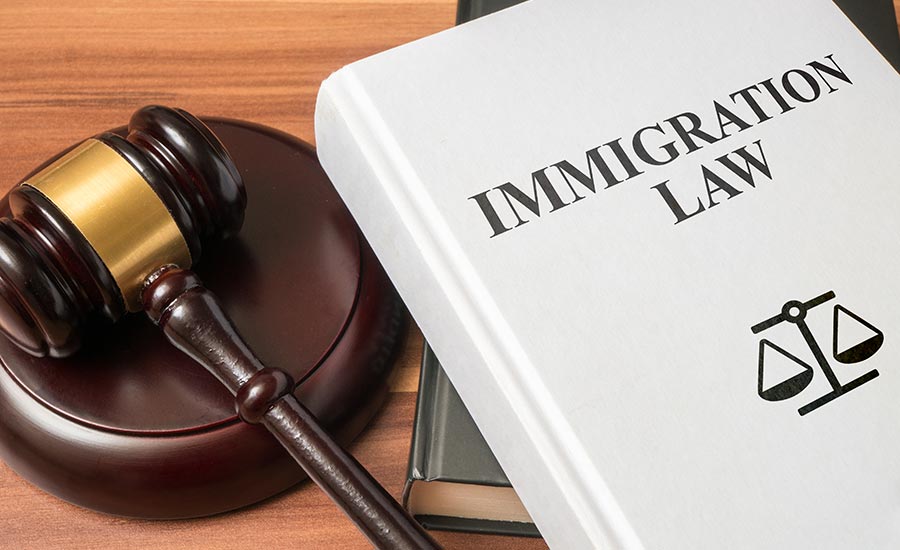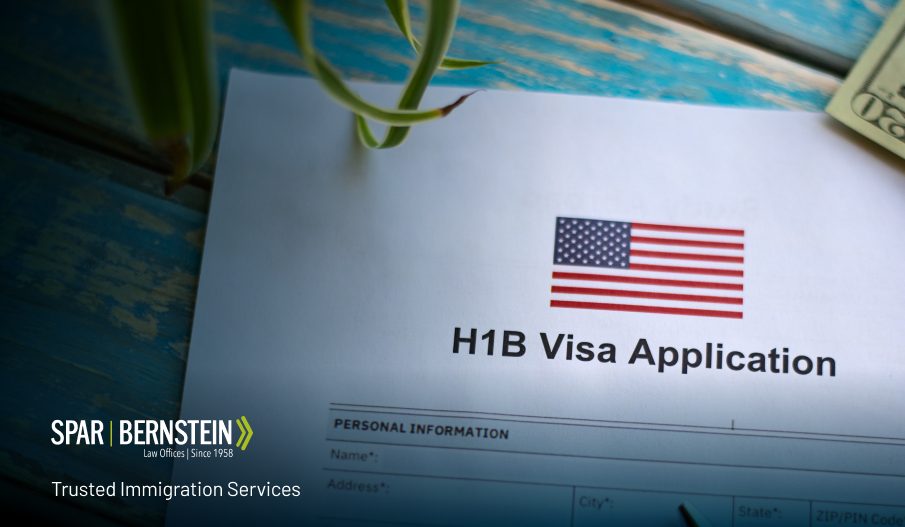

H-1B Visa Changes: Key Takeaways
- According to a proclamation by President Donald Trump, employers must pay a $100,000 fee for each new H-1B hire, providing proof of payment, complying with stricter documentation rules, and preparing for higher prevailing wages
- The restrictions take effect on September 21, 2025, and will last for one year
- H-1B workers already in the U.S. will not be affected by the change
- DHS will prioritize high-paid, highly skilled workers in future visa processing
- IT outsourcing firms, startups, SMBs, universities, and global employers will be the most affected
- Employers should stay on top of H-1B changes, review hiring budgets, explore alternative visas, and consider remote options
On September 19, 2025, President Trump issued a proclamation that imposes drastic restrictions on the H-1B visa program for new foreign hires unless each worker’s visa application is accompanied by a payment of $100,000.
The executive order sparked immediate concern. Employers are now asking questions like:
- Can I still hire foreign talent on an H-1B visa?
- Do the changes apply to workers who are already in the U.S.?
- What are my options if I can’t afford the new fee?
- How will these restrictions affect my hiring plans?
In this blog, we’ll break down:
- What the new H-1B rules actually say
- How they could affect your business
- What strategic steps you can take
Trump On H-1B: Key Changes Under The 2025 Proclamation
Let’s unpack what the new rules are and how they could disrupt your hiring plans.
Restrictions On Entry
Under the new rules, as of September 21, 2025, foreign nationals applying for an H-1B visa from outside the U.S. will be denied entry unless their applications are accompanied or supplemented by a payment of $100,000 per worker.
These restrictions will last 12 months unless extended. They apply to:
- H-1B workers currently outside the U.S.
- Employers who haven’t paid the mandated fee
The change does not apply to:
- H-1B workers already in the U.S.
- Workers approved under a national interest exemption (granted at the discretion of the Department of Homeland Security)
What does it mean for you as an employer?
If you were planning to bring in foreign talent in 2025 or early 2026, you’ll need to pay the $100K fee for each new employee or put those hires on hold.
Freeze On Visa Petitions Without Proof Of Payment
The new rules stop visa processing for H-1B workers abroad if no payment is made. So when you file a petition, you must provide proof you have paid the new fee.
This change has real cost implications for your business, and you may need to:
- Reassess your hiring budget
- Determine whether sponsoring an H-1B worker justifies the up-front cost you’ll pay
Compliance Requirements
If you’re planning to hire under the new rules, keep in mind that the $100,000 payment isn’t optional. Have that documentation ready: DHS won’t process a thing without it.
Why this is important for you:
The compliance risk for your HR and legal teams increases: any error, like petitioning without proof of payment or improperly classifying the worker’s visa status, can lead to petition denials and thorough audits.
Amending Of Prevailing Wage Levels
The President’s proclamation also directs the Department of Labor to revise prevailing wage requirements. The goal is to ensure H-1B workers cannot be paid below-market rates.
If your workforce strategy depends on hiring more people at lower wage levels, you’ll need to explore alternative staffing models.
In practical terms for your hiring team, the expected rise in labor costs can make employing U.S. workers relatively more affordable.
Future Prioritization Of High-Skilled, High-Paid Workers
DHS will prioritize visa processing for high-wage, high-skilled foreign professionals, filtering out lower-skilled or lower-paid H-1B applicants over time.
This could reshape how you source talent. The expected shift in how H-1B visas are granted will favor companies that are looking to hire Ph.D.s, tech leads, data scientists, and highly specialized experts, especially those with six-figure salaries.
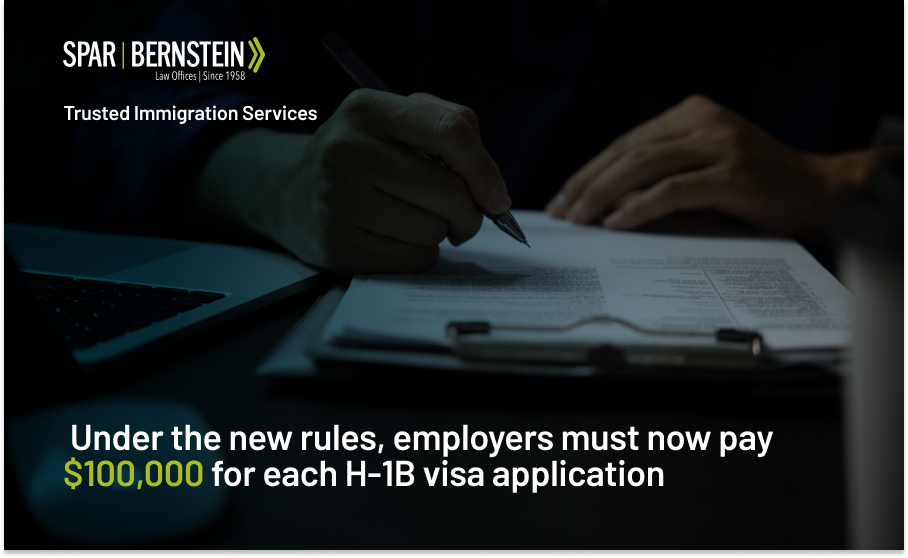
Who Will Be Impacted Most
The new H-1B restrictions will not affect all employers equally. While large corporations with billions of dollars in revenue may be able to pay the new $100,000-per-worker fee, others will face serious challenges.
The businesses expected to suffer most include:
- IT outsourcing firms: Relying heavily on H-1B workers, these companies have often placed them with U.S. clients at discounted rates. With the new fee requirements, this business model will no longer be sustainable.
- Startups and SMBs: Small and mid-size businesses often turn to H-1B hires for specialized skills they cannot find locally. However, they typically have tight budgets and limited resources, and the new fee could slow or limit growth.
- Universities and research institutions: Higher-education institutions and research labs often employ foreign talent on H-1B visas, especially in STEM disciplines. The grants they use are unlikely to stretch to cover the new costs.
- Employers with global hiring pipelines: Companies with international hiring strategies will need to either pay the new fees or recruit talent under alternative visa categories.
H-1B: Your Next Steps As An Employer
If your business relies on H-1B workers, you must now act quickly to adjust your hiring and compliance strategies.
Reevaluate Workforce Planning & Budgets
- Factor in the new H-1B fee when calculating future hiring costs.
- Take a look at your goals: is the value of an international hire worth the upfront cost, or could domestic talent meet the same need?
Consider Alternative Visa Categories
Check if you are eligible for other visa options that may bypass the new restrictions such as the L-1, O-1, and TN visa.
Prepare For Increased Prevailing Wage Requirements
- Expect new rules raising the minimum salaries for H-1B positions.
- Prepare to adjust compensation packages to avoid underpayment.
Audit Your Existing Documentation
Review all visa petitions, wage records, and job classifications to ensure your records are accurate and up to date.
Explore Remote Work Options
If bringing talent to the U.S. is not ROI-grounded, consider hiring remote workers: This will allow you to benefit from their skills without the immigration hurdles.
Consider Filing For A National Interest Exemption
If you are working in the defense, cybersecurity, or healthcare sectors, DHS may accept hires on a “national interest” basis, allowing you to bring in the employees you need.
Contact An Experienced Immigration Lawyer
The high financial stakes of the new rules and the strict compliance requirements call for an urgent consultation with a trusted business immigration attorney.
Your attorney will help you evaluate visa options, file for exemptions, and avoid costly mistakes.
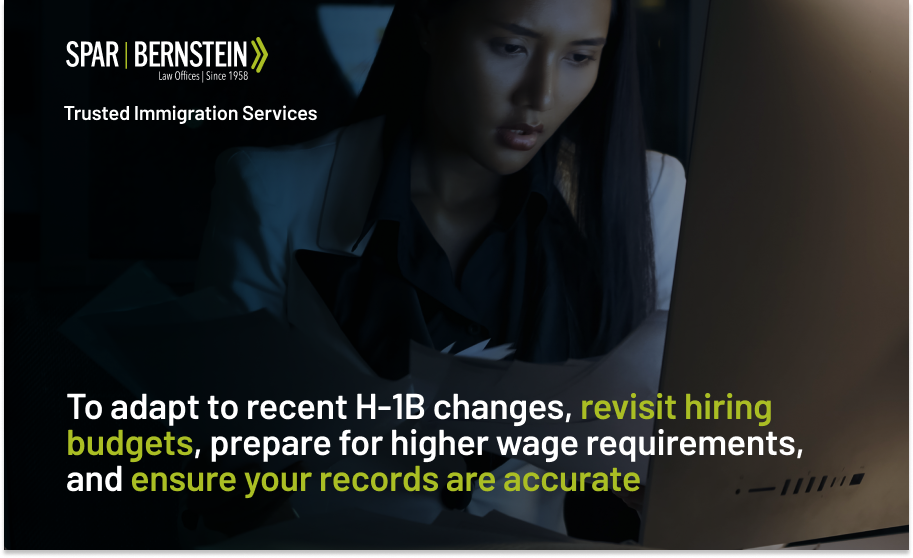
How Spar & Bernstein Can Help You Navigate The New H-1B Rules
Worried about the latest H-1B restrictions? You are not alone. This legal challenge requires a carefully planned business strategy.
For over six decades, our knowledgeable immigration lawyers at Spar & Bernstein have been working with companies of all sizes and industries to help them stay compliant, control costs, and continue bringing in the global talent they need.
To support your business amid the new H-1B visa changes, our experienced team will:
- Review your hiring needs and assess whether paying the $100,000 H-1B fee makes sense for your company.
- Suggest alternative visa routes if the H-1B visa is not a plausible option and help you find the most efficient and cost-effective alternative.
- Determine whether your compensation structures and petitions align with Department of Labor wage rules to avoid penalties or denials.
- Audit your immigration files, prepare you for government requests, and keep you updated on regulatory changes that could affect your business.
Whether you’re a multinational company, a university seeking STEM researchers, or a growing startup, Spar & Bernstein can help with the new H-1B restrictions.
H-1B Visa Changes: FAQs
Has the H-1B program been canceled?
No, the H-1B visa category still exists under U.S. law. However, the new policy has restricted entry for most foreign workers outside the U.S. unless employers pay a $100,000 fee for each worker. The fees make this visa category less accessible for smaller employers with tight budgets.
When do the new H-1B visa restrictions take effect?
The restrictions came into effect on September 21, 2025, and will expire in 12 months unless extended by the administration.
Who is impacted by the H-1B visa restrictions?
The new changes will affect:
- H-1B workers outside the U.S. who are seeking to enter the United States.
- Employers who want to bring in new foreign hires from abroad.
Will the new H-1B visa rules affect employees who are already in the US?
Employees already in the U.S. on an H-1B basis are not directly affected. However, future extensions and transfers may be scrutinized by U.S. Citizenship and Immigration Services.
What happens if I file an H-1B petition without the $100,000 fee?
Without that payment confirmation, don’t expect your H-1B petition to even make it to review.


